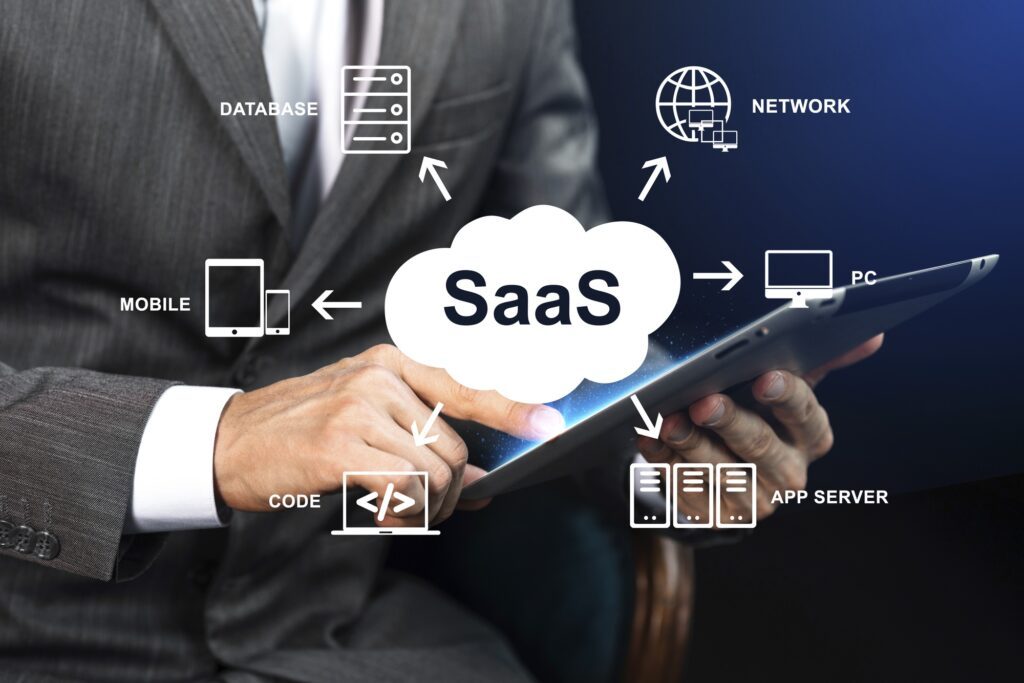Cloud ERP (Enterprise Resource Planning) solutions have fundamentally transformed the way organizations oversee their resources, data, and operations. By removing the necessity for costly on-premise infrastructure, cloud ERP has enabled businesses of all sizes to utilize powerful tools that optimize processes, foster collaboration, and promote growth.
As technology continues to advance rapidly, the upcoming five years are poised to introduce substantial changes and enhancements to cloud ERP systems.
This article examines the trends and innovations that will influence the future of cloud ERP solutions, with a particular emphasis on aspects such as artificial intelligence, data security, integration capabilities, and customization.
1. The Rise of AI and Machine Learning
Artificial intelligence (AI) and machine learning (ML) are already being integrated into ERP systems, but their impact is expected to grow significantly in the next five years. AI-enhanced cloud ERP solutions will not only automate routine tasks but will also analyze extensive datasets to deliver valuable insights and predictive analytics.
Key Advancements:
- Predictive Analytics: Organizations will utilize AI to foresee trends, predict demand, and optimize inventory management in real time.
- Enhanced Decision-Making: AI-driven ERP will facilitate more informed and quicker decisions by synthesizing data from various sources and offering actionable insights.
- Automation of Complex Tasks: Processes such as financial forecasting, procurement, and human resource management will see increased automation, leading to time savings and reduced errors.
- Intelligent Chatbots: AI-powered virtual assistants will enhance the user experience by delivering immediate support and automating basic inquiries.
As AI technology evolves, cloud ERP systems will transition from mere operational tools to strategic partners in fostering growth.
2. Increased Focus on Data Security and Privacy
As organizations increasingly depend on cloud-based ERP system, the importance of data security and privacy will escalate significantly. With the rise in the sophistication of cyber threats, cloud ERP providers are expected to make substantial investments in advanced security measures to protect sensitive information.
Emerging Trends in Data Security:
- AI-Powered Security: The utilization of AI and machine learning will enable the detection and immediate response to security breaches.
- End-to-End Encryption: Encryption: Data will be encrypted during transmission and while stored, ensuring optimal security.
- Zero Trust Architecture: Cloud ERP providers will adopt zero-trust architectures, which will not automatically trust any user or device.
- Regulatory Compliance: Solutions will adapt to meet global regulatory standards, including GDPR, HIPAA, and CCPA, facilitating smoother international operations for businesses.
In the coming five years, cloud ERP platforms are anticipated to introduce sophisticated security features, such as biometric authentication, blockchain-based data integrity, and real-time threat detection.
3. Greater Integration and Interconnectivity
The future of cloud ERP is characterized by its capacity to integrate effortlessly with various technologies and systems. Organizations are progressively utilizing a range of tools—from CRM systems to IoT devices—necessitating that cloud ERP serves as the central hub for these interconnected frameworks.
Key Innovations in Integration:
- API-Driven ERP Platforms: API-Centric ERP Platforms: Cloud ERP solutions will provide comprehensive APIs that simplify integration with third-party applications and emerging technologies.
- IoT Integration: Internet of Things (IoT) devices will supply real-time data to ERP systems, allowing for accurate monitoring of supply chains, production processes, and assets.
- Blockchain Integration: The incorporation of blockchain technology into ERP systems will establish transparent and tamper-resistant records for financial transactions, supply chains, and contracts.
- Seamless Communication with CRMs and HR Systems: Systems: Organizations will experience improved integration between ERP systems and tools for customer relationship management, human resources, and project management.
This trend toward greater interconnectivity will make cloud ERP solutions the central nervous system of modern businesses.
4. Hyper-Personalization and Customization
The traditional one-size-fits-all ERP solutions are rapidly losing relevance. As organizations seek more customized options, cloud ERP providers are shifting their focus toward delivering highly personalized experiences.
Future of Customization:
- Modular ERP Systems: Companies will have the flexibility to select and integrate only the necessary modules, thereby minimizing expenses and simplifying operations.
- AI-Driven Personalization: Artificial intelligence will evaluate user behavior to suggest tailored dashboards, workflows, and tools that align with individual roles and preferences.
- Low-Code and No-Code Platforms: Organizations can modify ERP workflows and applications without requiring extensive technical knowledge.
- Industry-Specific Solutions: Cloud ERP providers will develop specialized tools designed for particular sectors, including healthcare, manufacturing, and retail.
The capacity to customize ERP solutions will enable organizations to better align their technology with their distinct objectives and challenges.
5. Enhanced User Experience (UX)
As businesses increasingly adopt cloud ERP systems, the user experience will emerge as a key differentiator. The forthcoming generation of ERP systems will prioritize intuitive, user-centric designs that streamline complex tasks.
UX Innovations to Watch:
- Mobile-First ERP Solutions: Cloud ERP platforms will enhance mobile accessibility, enabling users to manage and access data while on the move.
- Voice-Enabled Features: Voice commands and AI assistants will facilitate system navigation, report generation, and task completion without the need for hands-on interaction.
- Simplified Dashboards: Dashboards: AI-powered dashboards will highlight essential metrics and insights, reducing clutter and enhancing clarity.
- Augmented Reality (AR) and Virtual Reality (VR): These technologies will provide immersive experiences, such as training simulations or digital replicas for manufacturing processes.
Improved user experience will result in higher adoption rates, greater productivity, and a more empowered workforce.
6. Expansion of ERP for SMBs
Historically, ERP systems were primarily used by large enterprises. However, the cloud revolution has made ERP solutions accessible to small and medium-sized businesses (SMBs). Over the next five years, cloud ERP adoption among SMBs will skyrocket.
Key Drivers:
- Cost-Effectiveness: Cloud ERP solutions offer affordable subscription-based models, removing barriers to entry for smaller companies.
- Scalability: SMBs can start small and scale their ERP systems as they grow.
- Simplified Implementation: Improved low-code platforms will allow SMBs to implement ERP systems quickly and with minimal disruption.
Cloud ERP providers will tailor their offerings to cater to SMBs, enabling smaller businesses to compete more effectively with larger enterprises.
7. Sustainability and ERP
Sustainability is becoming a priority for businesses worldwide, and cloud ERP solutions will play a key role in helping companies reduce their environmental impact.
Sustainability Features:
- Carbon Footprint Tracking: ERP systems will provide tools to monitor and report carbon emissions across supply chains.
- Energy Efficiency: AI-powered analytics will optimize energy consumption in production and logistics.
- Sustainable Procurement: Cloud ERP will support smarter procurement decisions by identifying eco-friendly suppliers and materials.
By incorporating sustainability tools, cloud ERP solutions will help businesses achieve their environmental goals while meeting the expectations of environmentally conscious customers.
Conclusion
The upcoming five years are set to usher in a dynamic era of change for cloud ERP solutions. With advancements in AI-driven automation, predictive analytics, improved security measures, increased customization options, and sustainability initiatives, the development of cloud ERP will enable organizations to function more intelligently, swiftly, and efficiently than ever before.
As technology progresses, cloud ERP systems will evolve beyond mere operational instruments; they will become vital strategic assets that foster growth, innovation, and enduring success. Companies that welcome these advancements will find themselves leading their sectors, prepared to adapt and flourish in a progressively digital landscape.












